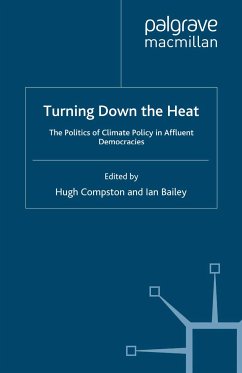Dieser Download kann aus rechtlichen Gründen nur mit Rechnungsadresse in A, B, BG, CY, CZ, D, DK, EW, E, FIN, F, GR, HR, H, IRL, I, LT, L, LR, M, NL, PL, P, R, S, SLO, SK ausgeliefert werden.
'Comprehensive in its coverage of the many political dimensions of the climate change problematique... Just the kind of book that vote-seeking politicians should read before making new policy pronouncements on climate change.' - Professor Andrew Jordan, School of Environmental Sciences, University of East Anglia, UK
'...the coeditors and chapter authors have ambitiously offered critical ways forward for the difficult challenges of climate politics and policy in the 21st century...I strongly recommend the volume...' - Maxwell Boykoff, Government and Policy
'[This book] can, and should, be read by decision makers at all levels of governmental responsibility [...] it can also help inquisitive members of the public gain a deeper knowledge of the complexities and compromises imposed by working within democratic systems. [...] This reviewer strongly recommends this informative and well-written compliation of papers for anyone seeking an understanding of the factors that drive or constrain decision makers at this critical period when time is running short if we wish to avoid global catastrophe.' - Dennis Wheeler, The Geographical Journal









